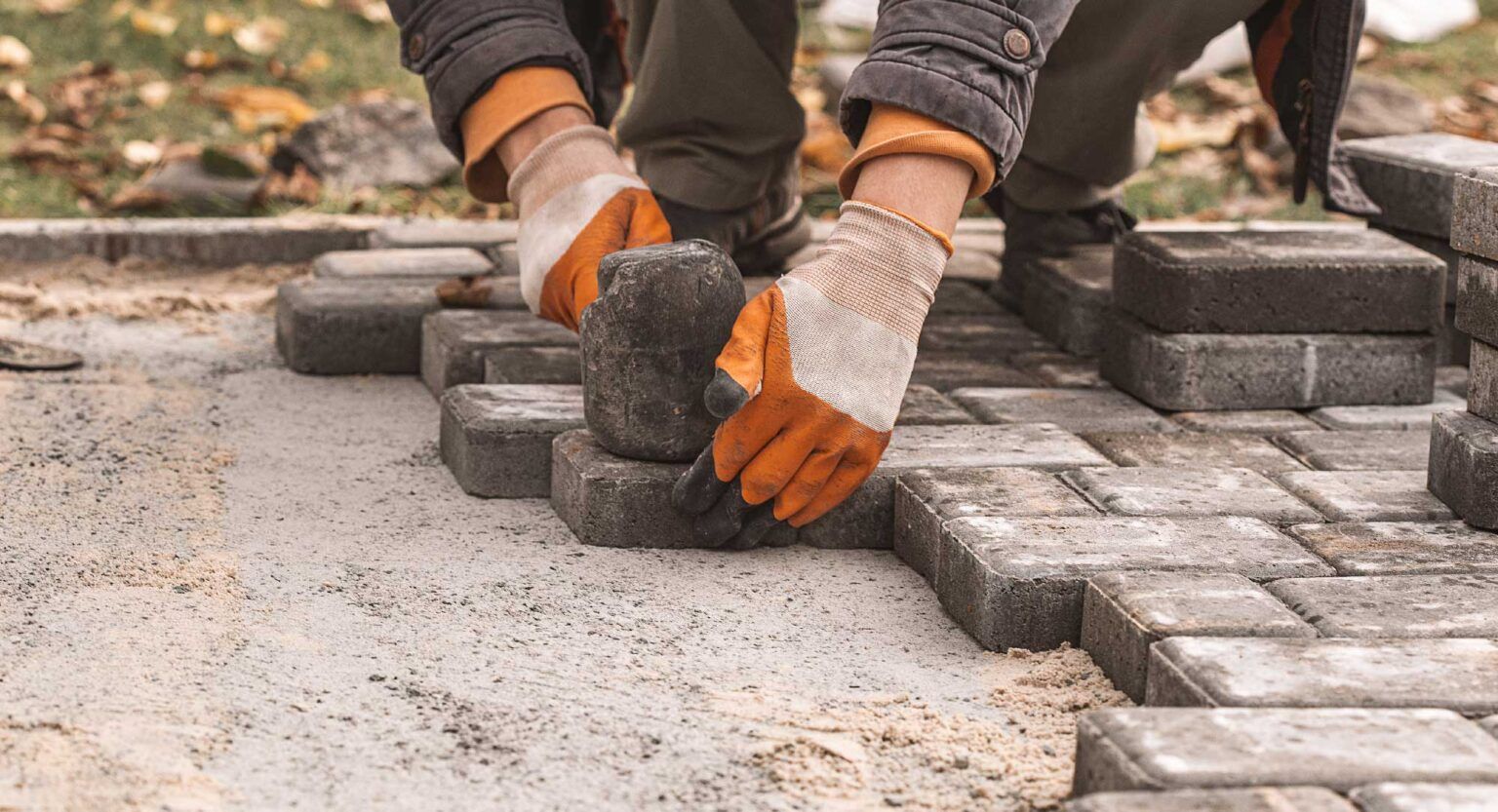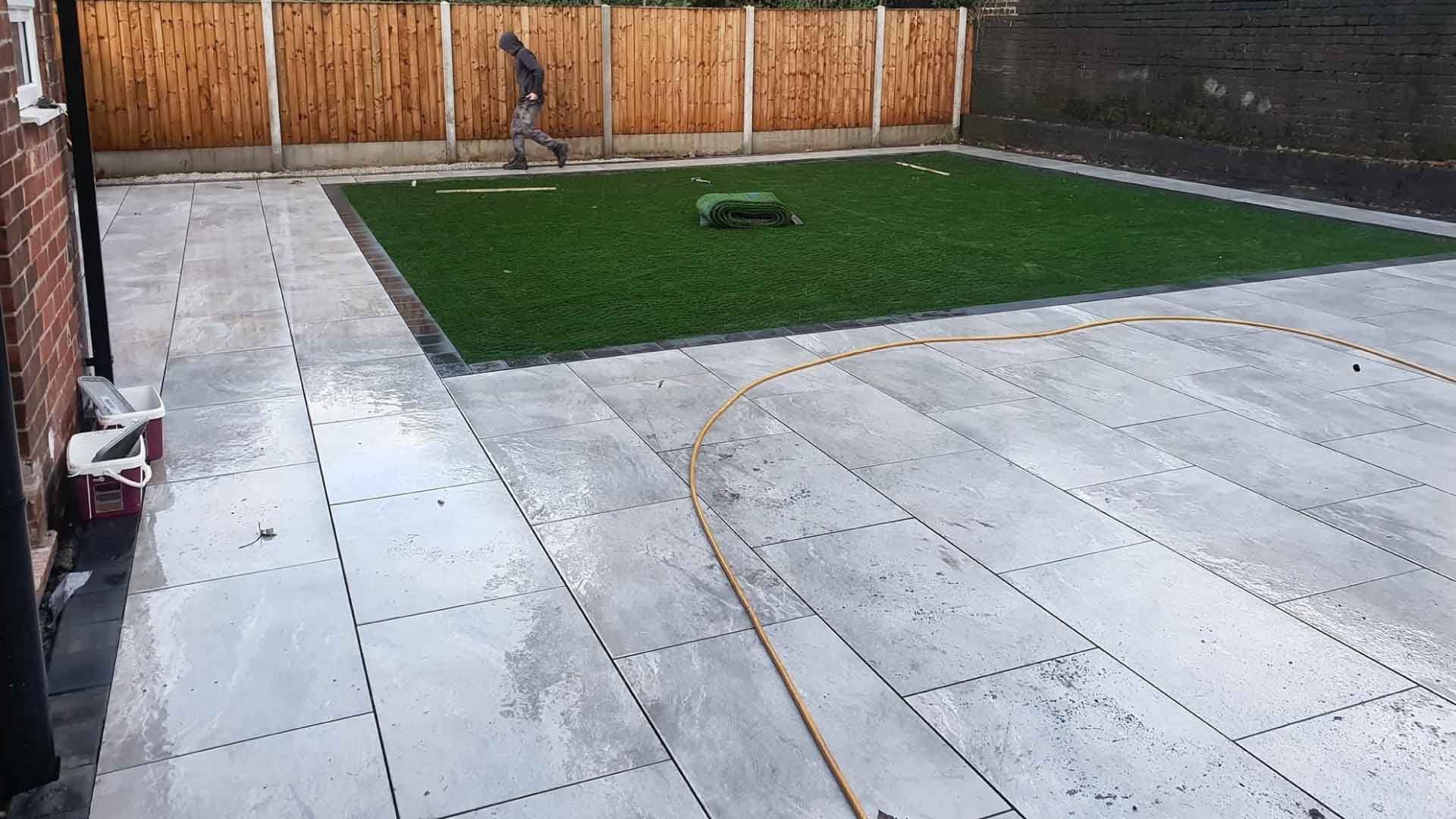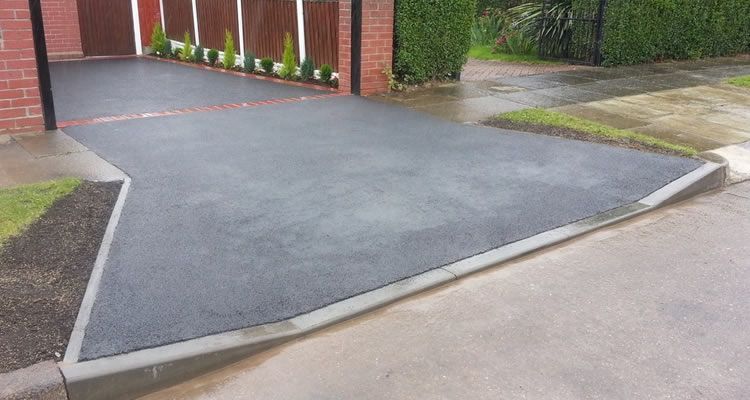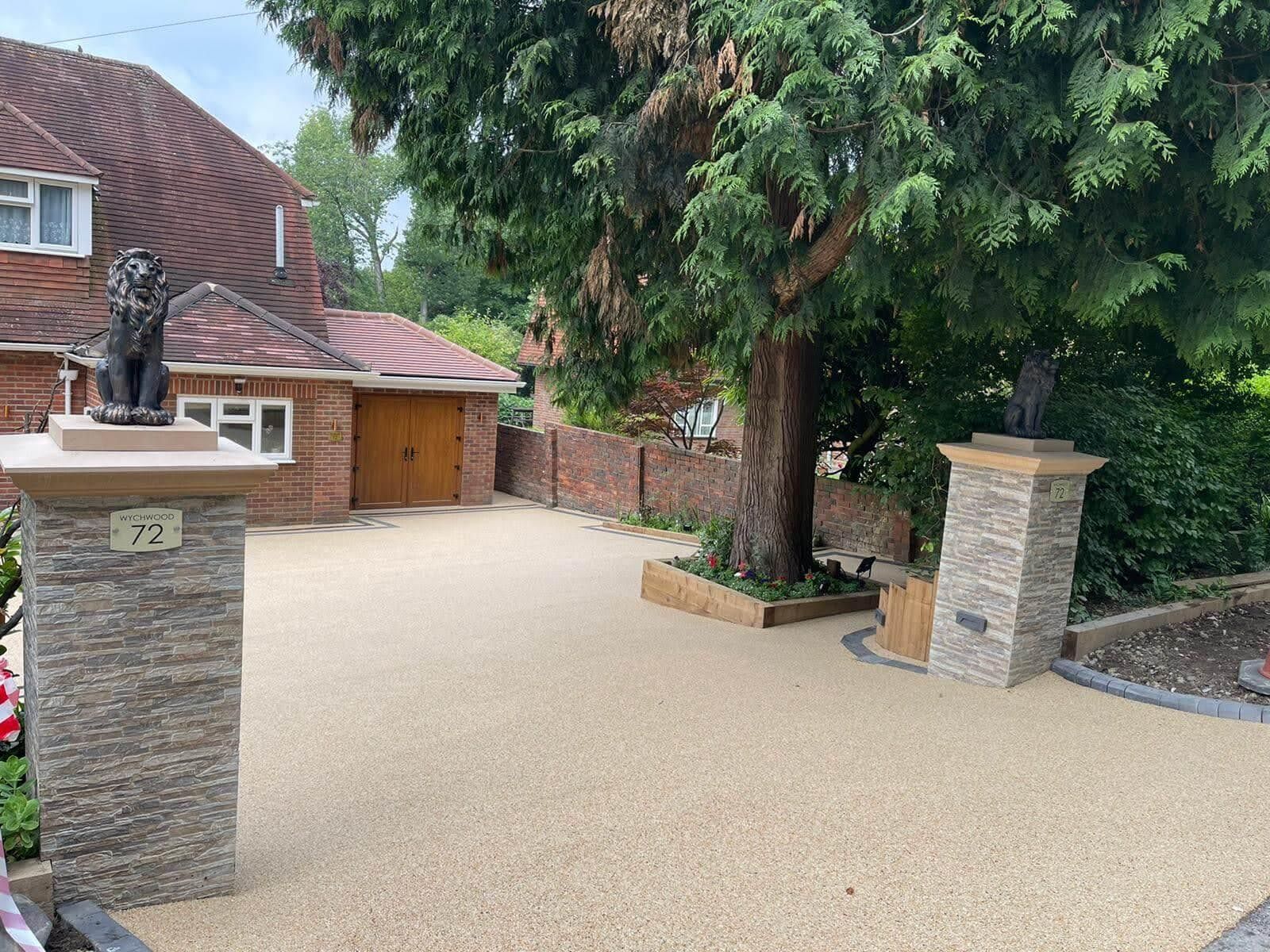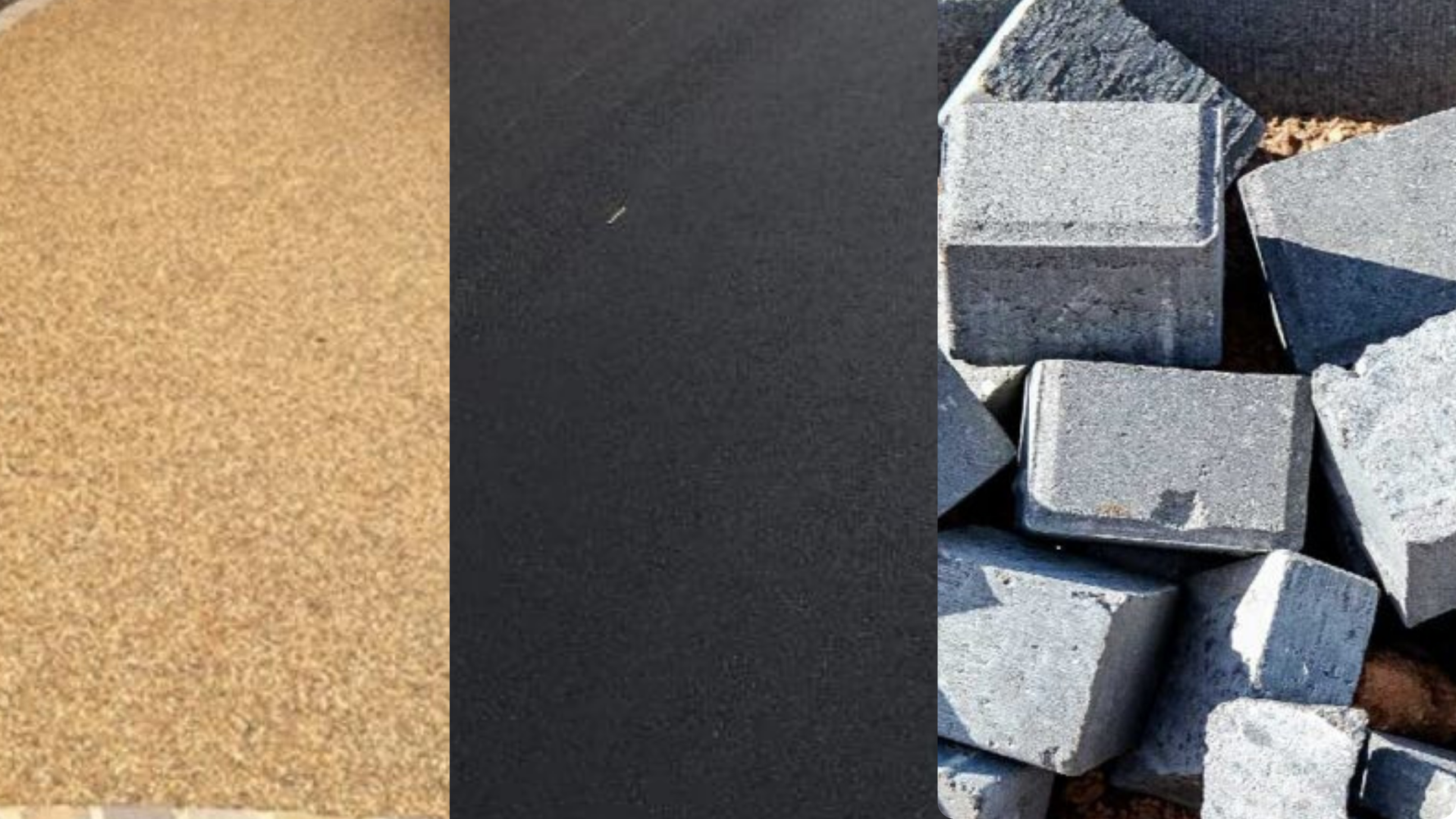Do It Yourself Driveway Paving
Save money and personalise your driveway by opting for a DIY paving project. In this guide, we’ll show you how to pave your driveway step by step, providing expert tips and advice for a successful and long-lasting result.
Whether you choose concrete, asphalt, or interlocking pavers, with the right tools and materials, you can create a durable and attractive driveway that enhances the kerb appeal of your home. From site preparation to the finishing touches, we’ll cover everything you need to know to tackle this DIY project with confidence.
So, let’s get started and transform your driveway into a smooth and inviting entrance. Paving your own driveway has never been so easy! Today we will discuss “Do It Yourself Driveway Paving”.
Benefits of DIY Driveway Paving
DIY driveway paving offers numerous benefits that make it an attractive option for homeowners. One of the main advantages is the potential cost savings. By taking on the project yourself, you can avoid the expenses associated with hiring a professional paving contractor. This can lead to significant savings, especially for larger driveways.
Another benefit is the customisation aspect. DIY paving allows you to choose the materials, colours, and design that best suit your preferences and the overall aesthetic of your property. You have the freedom to create a unique driveway that reflects your personal style.
In addition to cost savings and customisation, undertaking a DIY paving project provides a great sense of accomplishment. Completing the project with your own hands can be incredibly satisfying, knowing that you have transformed a part of your property on your own. This sense of achievement can boost your confidence, inspire you to take on more home improvement projects, and contribute to a sense of pride in your home.
Essential Supplies and Tools for DIY Driveway Paving
When tackling a driveway paving project on your own, it’s crucial to have the necessary supplies and tools to ensure a successful outcome. Here are five essential items you’ll need:
- Asphalt or Concrete Mix – Depending on your preference and budget, choose either asphalt or concrete mix to create a durable and long-lasting driveway surface.
- Gravel and Sand – These materials are essential for creating a stable base layer and promoting proper drainage for your driveway.
- Paving Roller or Tamper – Investing in a paving roller or tamper will help you achieve a smooth and even surface, ensuring your driveway is properly compacted.
- Edging Tools and Forms – Edging tools and forms are essential for creating clean and defined edges for your driveway, adding a professional touch to the finished product.
- Safety Equipment – Don’t forget to prioritise safety! Wear protective gear such as gloves, goggles, and a dust mask to keep yourself safe from potential hazards during the paving process.
Step-by-Step Guide – Do It Yourself Driveway Paving
To successfully pave your own driveway, follow these step-by-step instructions:
- Start by removing any existing driveway material, such as gravel or asphalt. Clear the area of debris and level the ground. Consider edging the driveway to create defined borders.
- Next, lay a base layer of crushed stone or gravel that is compacted to provide stability. This will ensure a solid foundation for your paving material.
- Choose your desired paving material, such as concrete or asphalt, and prepare it according to the manufacturer’s instructions. Apply the material evenly over the prepared area using appropriate tools.
- Use a plate compactor or a roller to compact the newly applied material. This step is crucial to eliminate air pockets and ensure a smooth surface.
- After paving, allow the surface to cure for the recommended duration as advised by the material manufacturer. This will ensure the durability and longevity of your driveway.
Frequently Asked Questions
Can you pave a driveway yourself?
Yes, you can pave a driveway yourself. It requires proper planning, tools, and knowledge of the process. Ensure the area is prepped, level, and compacted before laying the paving material. Remember to follow safety precautions and guidelines for a successful DIY driveway paving project.
What is the least expensive way to pave a driveway?
The most cost-effective way to pave a driveway is by using gravel or crushed stone. These options are affordable and easy to install, making them a popular choice for budget-conscious homeowners. Additionally, they offer good drainage and can withstand heavy use.
What is the easiest driveway to do yourself?
The easiest driveway to do yourself is a gravel driveway. It requires minimal preparation and tools. Simply level the ground, lay a weed barrier, and spread the gravel evenly. Gravel driveways are low maintenance and cost-effective, making them a popular choice for DIY projects.
What is the cheapest way to do a driveway?
The cheapest way to do a driveway is by using gravel or crushed stone. It is affordable, easy to install, and requires minimal maintenance. However, keep in mind that gravel driveways may not be suitable for all locations or climates.
Conclusion
Tackling a do-it-yourself driveway paving project can be a rewarding endeavour. By following the right steps and using the right materials, you can transform your driveway into a durable and aesthetically pleasing surface. Remember to plan appropriately, prepare the area properly, and take your time during the installation process.
With careful attention to detail, you can achieve professional-looking results without breaking the bank. So, roll up your sleeves and get ready to enjoy the satisfaction of a job well done on your newly paved driveway.


